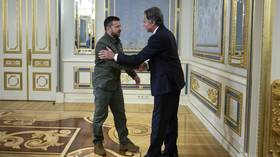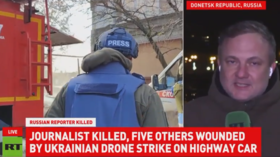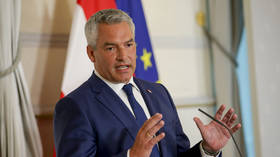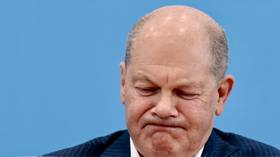‘Paris police rape case will influence French presidential race’
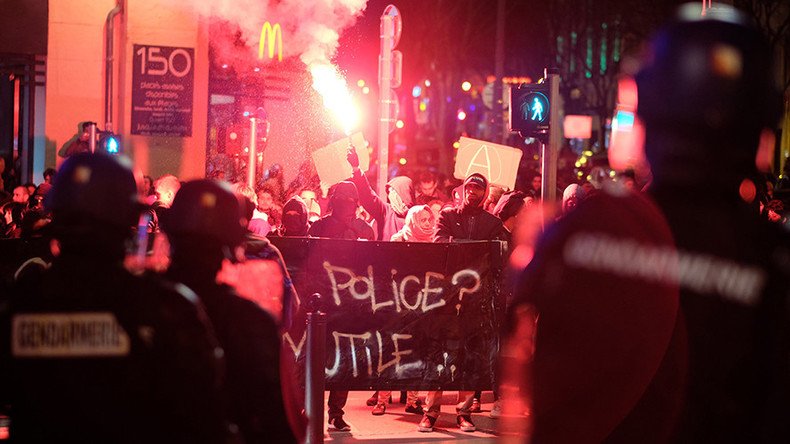
French officials must choose their words carefully following reports that a young man was raped while in police custody, says Cecile Le Roux, multiculturalism expert. The protests could heat up because people are really fed up, she added.
Demonstrations erupted after a 22-year-old black man, identified only by his first name, Theo, was allegedly sexually abused by police with a baton during unrest in a Paris suburb. One officer has been charged with rape while three others were charged with assault. The lawyer of the officer charged with rape said the evidence suggests the incident was unintentional.
Protests against police brutality in the French capital have been continuing for more than a week as protestors effectively shut down central Paris. Tensions rose when police officers used pepper spray against them.
Théo a réagi avec dignité et responsabilité. La justice a été saisie, il faut lui faire confiance. Elle ira jusqu'au bout. pic.twitter.com/YRlpdFXII6
— François Hollande (@fhollande) February 7, 2017
On Tuesday, French President François Hollande visited the young man, who called on people in the suburbs to remain calm and not to take to the streets, according to the president’s aides.
RT: Protests continue, the victim is still in hospital and police continue to insist the incident was an accident. Do you expect to see further unrest?
Cecile Le Roux: My thoughts go to Theo who has really suffered incredible pain and my thoughts go also towards the solidarity of all of the people who are reacting to a situation when you already have nerves that are really exposed, people are really upset, they are ‘fragilized’ by the fact that there is polarization between different types of people of different origins who are saying things about each other during an electoral process period. Everybody is very fragilized and words are very important and now the fact that the word 'unintentional' has been introduced into the fray in saying that what happened to poor Theo was somehow non-intentional, this is a trigger that apparently has given an incredible reaction. It’s to be expected. And if these triggers are not very carefully monitored by all of the people in the political sphere in France with the police and the judges, if they are not careful with the vocabulary that they use and the way that they characterize what happened, then I do expect that these protests could continue on because people are really very fed up and very upset.
RT: President Hollande visited the victim, only described as Theo, in a bid to quell the anger. Does it appear that he has failed to calm the situation?
CR: I really salute President Hollande for having visited the hospital because he really gave a sign of good will. He has already announced that he was not going up for reelection so his act is symbolically very important. The problem that happened here is that after that what happened in judicial environment is that this assault, which was considered to be an aggravated rape assault, because when you have a position of authority, if you commit any sort of penetration, then you have raped, then you raped 'aggravatedly’ because you were in a position of authority. So, this is very strong.
The situation in France was already highly tense since the death of Adam Traore seven month ago, a young black man again killed in the police custody. This time the outrage was sparked when the government did not send any sign of appeasement, first by not dismissing the officers, second, by qualifying the allegations as ‘it was not a rape, it was accidental’ What the government did was to send more troops to Aulnay-sous-Bois to keep this population in check rather than sending a sign admitting the officers did wrong. - Yasser Louati, human rights & civil liberties activist, specializes on Islamophobia and national security
RT: Do you think this incident will influence the ongoing presidential race?
CR: It absolutely influences it. And that in turn is what influences people to go on the street because it really is the words that were used to describe, to judge the event, to make reports back about the event, to make the vocabulary go downward – it went from "aggravated assault" to just "rape" and now it is "non-intentional". All of those words are being used right and left by the political sphere because the political campaign is on. And this reflects onto the people. People hear this and these discussions trigger very emotional results.
The statements, views and opinions expressed in this column are solely those of the author and do not necessarily represent those of RT.






